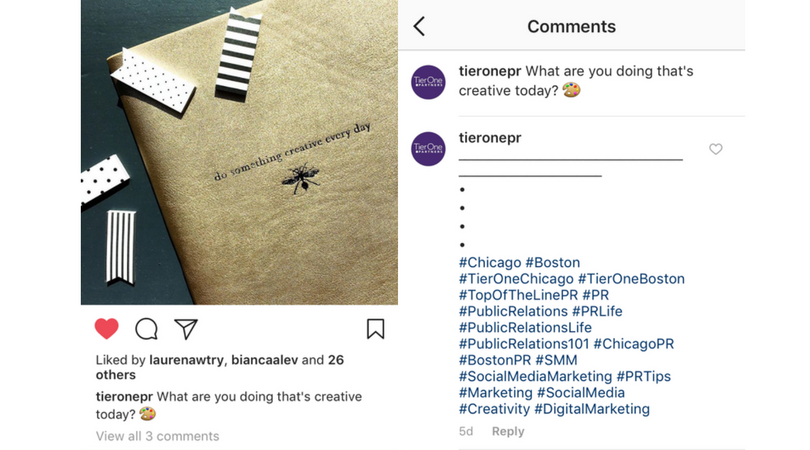Frequently Asked Questions: Hashtags

Posted By Grace Rasulo on July 12, 2017
Once upon a time, in a land far, far away, # was just a pound sign and not one of the most iconic symbols of the craze that’s taken over our digital lives — social media. Mastering the use of the hashtag can be a powerful and important tool for your brand’s social media strategy — one that certainly shouldn’t be underestimated.
As the most popular platforms have updated and evolved, the rules of the hashtag game - what works and what doesn’t - have changed. We’ve dug up the answers to the most common hashtag questions so you can ensure your brand is #winning on social.
Why should I even use hashtags?
Hashtags are the social media way to categorize the plethora of content by topic. (We have this rogue 2007 thought from former Google Developer, Chris Messina, to thank for this one).
how do you feel about using # (pound) for groups. As in #barcamp [msg]?
— Chris Messina (@chrismessina) August 23, 2007
Using topical hashtags gives you the ability to extend the reach of content beyond your own social followers by automatically inserting it into a bigger conversation; an important aspect of getting the most out of social media marketing. Think of it like social media’s version of Search Engine Optimization. Hashtags are a simple way to reach new people with content they’re searching for, even when they aren’t searching for you specifically.
How many hashtags should I use?
The answer to this question lies in the platform you’re using. While it may seem like you’d want to use plenty of hashtags to give your content maximum potential reach, there is such a thing as using too many, at least on Twitter and Facebook.
According to a study from Buffer, using one or two hashtags on Twitter can give you 2 times the engagement, but once you exceed that, your engagement can drop 17%. Given Twitter’s short, 140-character nature, using #too #many #hashtags can also make your content hard to quickly digest.
On Facebook and LinkedIn, less is more. Studies find that hashtags on Facebook have absolutely no positive effect on reach and posts actually perform better without them. Meanwhile, on LinkedIn hashtags are a relatively new feature and haven’t been fully adopted quite yet.
On Instagram however, hashtag strategy looks a little different. In fact, when done well, you can’t really see it at all. IGers have created an interesting and effective strategy, commenting on their own photos with a large number (TrackMaven’s study cites 11 or more as the magic number) of relevant hashtags. This works well on Instagram due to the fact that comments are hidden at first glance.

Bonus tip: Instagram recently added searchable hashtags within Instagram Stories, so give that a shot to increase viewers.
What should I hashtag?
Regardless of the amount of hashtags the platform allows you to use, it’s important to only use keywords relevant to your content. Thinking back to the idea of social media SEO, try creating a list of buzzwords your content relates to. After that, do a little research and see if those hashtags are actively used. If not, you’re just wasting real estate on a #hashtag that won’t actually bring you more traction.
Event and holiday hashtags are also a great way to grab some extra reach. Keeping an eye on trending topics in general is perfect for on the fly, timely content, showing you’re in the know and on top of what’s going on.
When should I use hashtags?
The answer to this one requires your best judgement with regards to the context of the content and your brand. Our advice? Use them only when aiming to extend the reach of your post. Hashtags are the helping hand of the social media world — and a certainly welcome one — but don’t do more than you need. Using extra hashtags is unnecessary clutter in a medium that already requires you to get to the point as quickly as possible.
Using hashtags correctly and effectively to maximize reach is an important part of any successful social media strategy. The more you know and grow, the better your brand’s presence will be.
Want more digital marketing tips and tricks? Subscribe to our weekly newsletter The Spark for the latest in content marketing, social media, and SEO.



